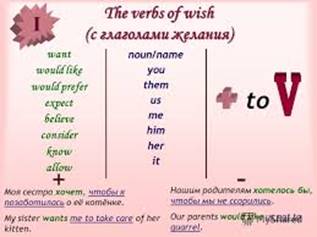
Муниципальное казенное общеобразовательное учреждение
«Луткунская СОШ»
План-конспект
открытого урока по английскому языку в 9 классе
Дата: 03.02.2020 г.
Тема урока:
Тема: «Complex Object (Сложное Дополнение)»

Подготовил учитель английского языка Гереева Анжела Аликберовна
Директор МКОУ «Луткунская СОШ
Ахмедов Эльдар Сейидханович
2020г
Школа: МКОУ «Луткунская СОШ»
Учитель английского языка,
Гереева Анжела Аликберовна
Дата: 03.02.2020г
Класс: 9
Конспект урока по английскому языку в 9 классе
по теме: «Complex Object (Сложное Дополнение)»
«Complex Object (Сложное Дополнение)»
Цели урока:
1. Повторение грамматической структуры Complex Object;
2. совершенствование лексико-грамматических навыков;
3. закрепление грамматических навыков.
Оборудование: раздаточный материал (карточки с заданиями), ИКТ.
Ход урока:
1. Организационный момент: Good morning, boys and girls! I am glad to see you today. How are you? What is the weather like today?
2. Сообщение цели урока: Today we'll revise the theme Complex Object that you’ve learned in few days ago.
3. Повторение 1-го типа Сложного Дополнения:
The combination of a noun in the common case or a pronoun in the objective case and an infinitive used after the predicate forms a complex object.
Complex object (сложное дополнение) состоит из имени существительного в именительном падеже (the woman, the employees, the manager) или местоимения в объектном падеже (me, you, us, them, him, her, it) и либо глагола в неопределенной форме (с частицей to или без нее), либо причастия первого (Participle I).
В первом подтипе данная грамматическая структура употребляется после глаголов употребляется после глаголов физического восприятия see, hear, watch, notice, feel, в структуре которого содержится либо инфинитив основного глагола без частицы to, либо Причастие I. Хотя между этими двумя вариантами существует смысловая разница (причастие выражает длительный характер действия, действие в процессе его осуществления, а инфинитив – действие законченное).
4. Тренировка в употреблении 1-го типа Сложного Дополнения:
Translate into Russian:
5. Повторение 2-го типа Сложного Дополнения:
Второй тип состоит в употреблении Сложного Дополнения после глаголов to make/to let. Важно помнить, что если глаголы употреблены в активном залоге, инфинитив Сложного Дополнения употребляется без частицы to. Однако в аналогичных пассивных конструкциях наличие частицы to необходимо. Также следует напомнить, что глагол to let в пассивных конструкциях не употребляется, вместо него используется глагол to allow: I won’t let you go there. He was not allowed to go there.
6. Тренировка в употреблении 2-го типа Сложного Дополнения:
Make up as many sentences as possible
|
Mother I |
Made Make(s) |
Him Us Her daughter |
Mend the furniture. Turn on the light. Go to bed. Feed the kitten. |
7. Повторение 3-го типа Сложного Дополнения:
1.
Глаголы, выражающие желание или
нежелание. Например, to want, структура would like, to like, to wish, to desire, to hate. (e.g. I wanted them  to make the report by 5 p.m. Я хотел,
чтобы
они
сделали отчет до 5 часов вечера.)+ Глаголы, выражающие предположение. Например, to expect (ожидать), to think (думать),
to believe (to полагать, считать), to suppose (полагать),
to consider (считать), to find (находить, признавать)(e.g. I expect my partner to come on time. Я надеюсь,
мой
партнер придет вовремя.)
to make the report by 5 p.m. Я хотел,
чтобы
они
сделали отчет до 5 часов вечера.)+ Глаголы, выражающие предположение. Например, to expect (ожидать), to think (думать),
to believe (to полагать, считать), to suppose (полагать),
to consider (считать), to find (находить, признавать)(e.g. I expect my partner to come on time. Я надеюсь,
мой
партнер придет вовремя.)
8. Тренировка в употреблении 3-го типа Сложного Дополнения:
Correct the sentences:
1) I want he come back at 6.
2) We expect the train to arrive on time.
3) Ann would like us going to the zoo.
4) I doesn’t expect they to answer my question.
5) She want Tom to came in.
Say using the phrases:
|
tell lies come home on time smoke cigarettes be too noisy help other people be honest read a lot
|
a) what parents usually want/don’t want their children to do;
b) what teachers usually expect/don’t expect their pupils to do;
c) what you would like/wouldn’t like your friend(s) to do.
9. Обобщение грамматической структуры Complex Object.
Now I would like you to make a test:
I saw her ... into the building.
coming
come
to come
I believed you ... three mobile phones.
have
having
to have
He made me ... the window.
closing
to close
close
I saw them ... in the park.
play
to play
playing
She believes Mark ... a good guy.
being
be
to be
I saw you ... in the park. Everybody liked it!
to dance
dance
dancing
Mr. Smith saw her friends ... the classroom.
to leave
leave
leaving
His mum made him ... his homework.
doing
to do
do
Shh! I hear someone ... .
cry
crying
to cry
He can’t make me ... this!
doing
to do
do
I like him ... this task so well.
do
doing
to do
I heard my mum ... me.
calling
to call
call
Mr. Brown would like his son ... a surgeon.
to become
become
becoming
I want ... more languages.
to learn
learn
learning
Don’t let him ... you.
to fool
fooling
fool
I expect the weather ... good today.
being
be
to be
I felt someone ... me on the shoulder.
touching
to touch
touch
I heard her ... a famous English song.
to sing
sing
singing
I know her ... a good student.
be
to be
being
Rainy weather makes me ... bad.
feel
feeling
to feel
10. Физкульт минутка
Sit comfortably. Close your eyes.
Breathe in. Breathe out.
Let,s pretend it`s summer. You are lying on a sandy beach. The sun is shining. The sky is blue. The weather is fine. The light wind is blowing from the sea. The birds are singing. You have no troubles. No serious problems. You are quiet. Your brain relaxes. There is calm in your body. You are relaxing. Your troubles flout away. You love your relatives and friends. They love you too. You are sure that you have much energy.
You are in good spirits.
Open your eyes. How do you feel?
11. Подведение итогов:
Today we revised the material about Complex Object. I’m very pleased with your work. Your homework will be to make up sentences using Complex Object, 3sentences for each type. Thank you for the lesson. Good-bye!
Материалы на данной страницы взяты из открытых источников либо размещены пользователем в соответствии с договором-офертой сайта. Вы можете сообщить о нарушении.